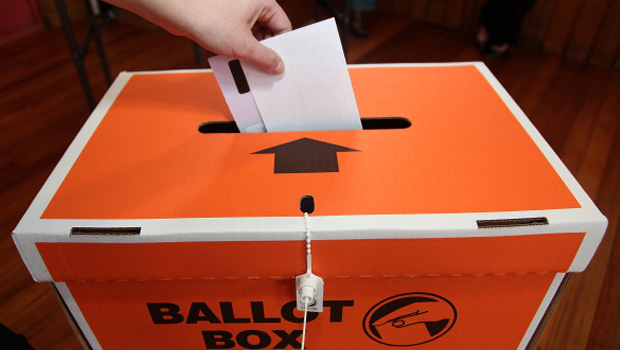Politics
Labour Voices Concerns Over Proposed Changes to Voting Laws

Proposed changes to voting laws in New Zealand have sparked significant debate, particularly among opposition parties. Justice Minister Paul Goldsmith has outlined plans to implement reforms that would eliminate election-day enrolment, prohibit voting by prisoners, and restrict free food and entertainment at polling stations. Goldsmith argues that these measures aim to streamline the electoral process and reduce delays in vote counting once polling closes.
Opposition voices, including Duncan Webb, the Labour Party’s justice spokesperson, have raised concerns about the potential impact of these changes on democracy. Speaking on a recent interview with Andrew Dickens, Webb emphasized the importance of accessibility in the voting process. He noted that many citizens forget to update their enrolment details for various reasons, and suggested that every vote matters in a functioning democracy. “We would prefer a system where everyone has a chance to participate,” he stated.
The proposed reforms, set to be discussed in March 2024, have prompted questions about their broader implications. Critics argue that limiting enrolment options could disenfranchise voters, particularly those who may encounter barriers to accessing the voting process. Webb highlighted that making voting more inclusive should be a priority, rather than instituting measures that could restrict participation.
As the government prepares to move forward with these proposals, the Labour Party is calling for a thorough examination of their potential effects. Webb’s remarks reflect a growing concern that the changes could disproportionately affect underrepresented groups in society. The Labour Party is advocating for a model that supports voter engagement and ensures that all eligible citizens have the opportunity to cast their votes.
The debate surrounding these proposed changes underscores the ongoing conversation about voting rights and democratic participation in New Zealand. As electoral reforms are considered, the implications for voter turnout and public trust in the electoral process remain at the forefront of discussions among lawmakers and citizens alike.
In summary, the proposals by Goldsmith have ignited a significant dialogue on the future of voting in New Zealand, with key figures like Duncan Webb pushing for a system that prioritizes inclusivity and accessibility. As the conversation develops, it will be crucial to monitor how these changes, if enacted, will shape the upcoming elections and the broader democratic landscape.
-

 World2 weeks ago
World2 weeks agoPrivate Funeral Held for Dean Field and His Three Children
-

 Top Stories3 weeks ago
Top Stories3 weeks agoFuneral Planned for Field Siblings After Tragic House Fire
-

 Sports3 months ago
Sports3 months agoNetball New Zealand Stands Down Dame Noeline Taurua for Series
-

 Entertainment3 months ago
Entertainment3 months agoTributes Pour In for Lachlan Rofe, Reality Star, Dead at 47
-

 Entertainment2 months ago
Entertainment2 months agoNew ‘Maverick’ Chaser Joins Beat the Chasers Season Finale
-

 Sports3 months ago
Sports3 months agoSilver Ferns Legend Laura Langman Criticizes Team’s Attitude
-

 Sports1 month ago
Sports1 month agoEli Katoa Rushed to Hospital After Sideline Incident During Match
-

 World3 weeks ago
World3 weeks agoInvestigation Underway in Tragic Sanson House Fire Involving Family
-

 Politics2 months ago
Politics2 months agoNetball NZ Calls for Respect Amid Dame Taurua’s Standoff
-

 Top Stories3 weeks ago
Top Stories3 weeks agoShock and Grief Follow Tragic Family Deaths in New Zealand
-

 Entertainment4 months ago
Entertainment4 months agoKhloe Kardashian Embraces Innovative Stem Cell Therapy in Mexico
-

 World4 months ago
World4 months agoPolice Arrest Multiple Individuals During Funeral for Zain Taikato-Fox


















